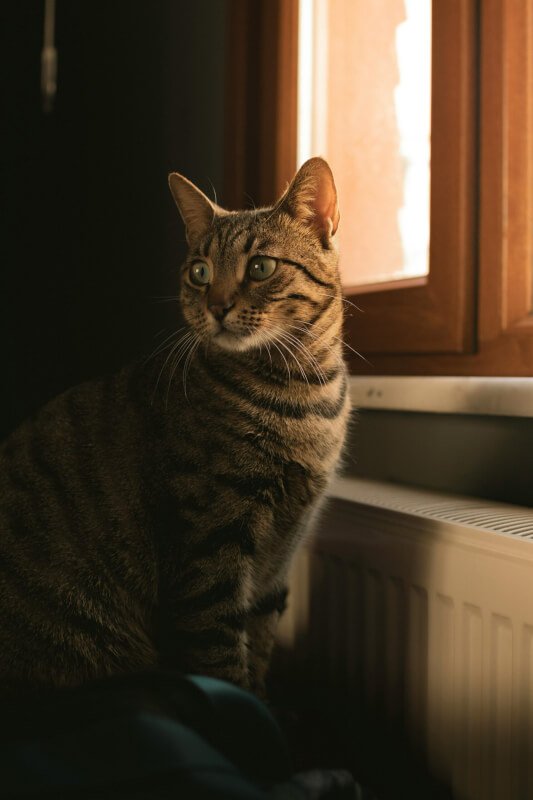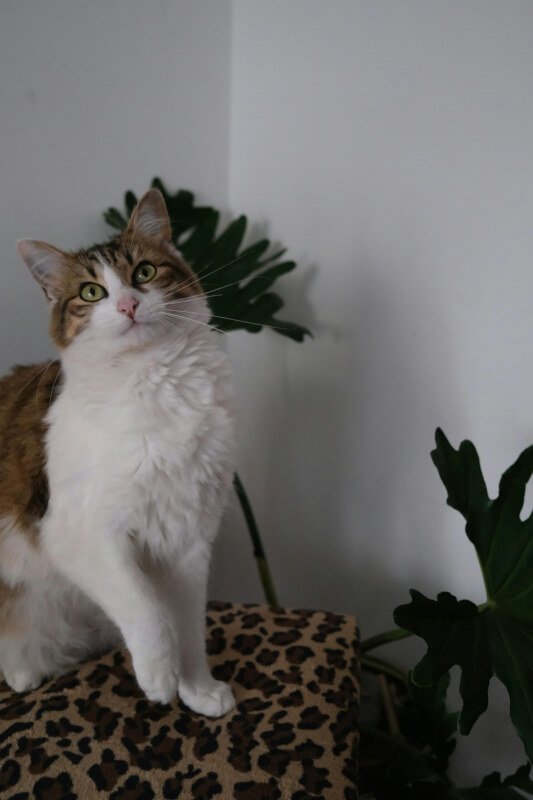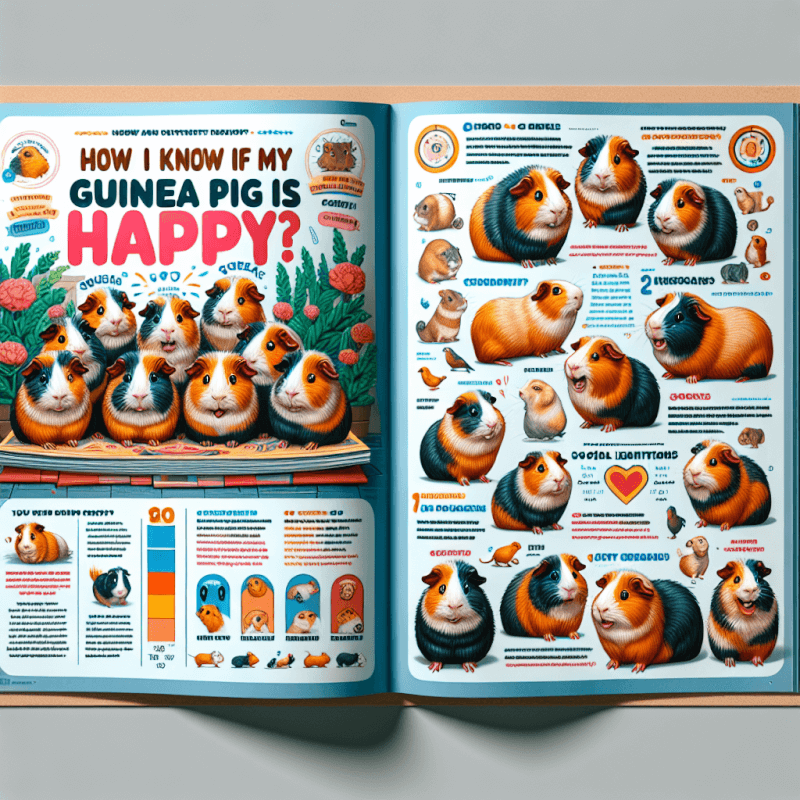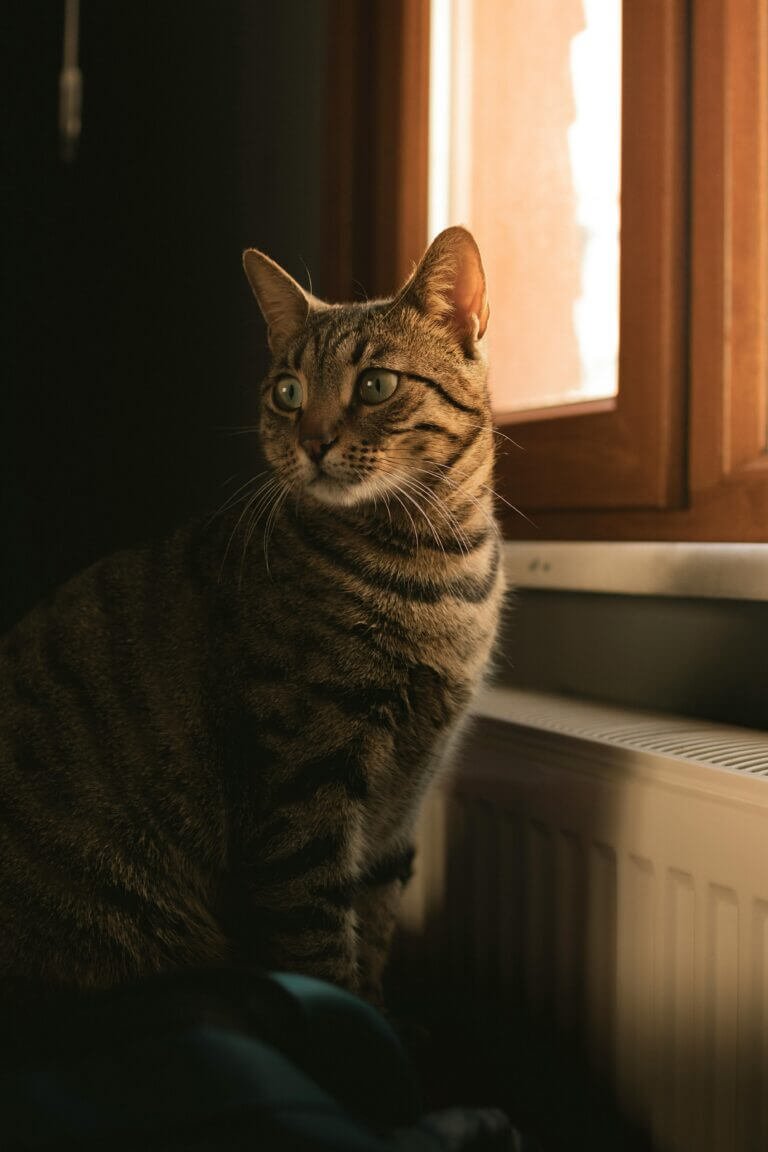Have you ever wondered if your guinea pig is truly happy? It can be tricky to figure out since they can’t communicate with words like we do. But don’t worry, there are subtle signs that can give you a clue into their emotional well-being. From their body language to their eating habits, let’s explore the key indicators that will help you determine if your furry friend is feeling content and delighted.

Physical signs of a happy guinea pig
Active and playful behavior
One of the most obvious physical signs of a happy guinea pig is their active and playful behavior. When your guinea pig is feeling happy and content, they will often engage in activities such as running around their enclosure, hopping, or popcorning. You may also notice them zooming around their space, playing with their toys, or interacting with their guinea pig companions. These lively and energetic behaviors indicate that your guinea pig is enjoying their environment and is in good health.
Ready for Cat Trivia?
Test your knowledge about cats!

Healthy appetite
A happy guinea pig will also have a healthy appetite. They will eagerly approach their food bowl or hay rack and show enthusiasm for their meals. You may notice them munching on hay, vegetables, and pellets with gusto. A guinea pig that has a good appetite is typically a sign of a content and satisfied pet. It’s important to ensure your guinea pig has a well-rounded diet that consists of fresh hay, a variety of vegetables, and a small amount of guinea pig pellets to meet their nutritional needs.
Shiny and soft fur
Another physical sign of a happy guinea pig is their fur. A happy guinea pig will have fur that is shiny, soft, and well-groomed. Their coat will appear lustrous and smooth, indicating proper grooming habits and good overall health. Regular brushing and providing them with a balanced diet rich in essential nutrients contribute to keeping their fur in top condition. Additionally, ensuring a clean living environment and minimizing stress can also promote a healthy coat.
Bright and alert eyes
The eyes of a happy guinea pig are bright, alert, and free from discharge. A content guinea pig will have eyes that are clear and shiny, without any signs of redness or swelling. They will show interest in their surroundings and respond to visual stimuli. Healthy eyes are a vital aspect of a guinea pig’s well-being. It’s important to monitor their eyes regularly and seek veterinary care if you notice any changes in their appearance or behavior.
Behavioral cues of a happy guinea pig
Wheeking with excitement
One of the most characteristic behavioral cues of a happy guinea pig is the joyful sound of wheeking. Wheeking is a high-pitched squeal that guinea pigs make when they are excited or anticipating something, such as mealtime or interaction with their human companions. It’s a vocalization that is often accompanied by energetic movements and displays of enthusiasm. When your guinea pig wheeks, it’s a clear indication that they are feeling happy and excited about something in their environment.
Frequent purring and rumbling
Guinea pigs often express their happiness through frequent purring and rumbling. Purring typically occurs when a guinea pig feels content and relaxed. It is a soft, low vibrating sound that they make, often accompanied by a relaxed body posture and closed eyes. Rumbling, on the other hand, is a more intense vocalization that guinea pigs use during social interactions or when they are feeling particularly happy. It’s a deeper and more resonant sound that indicates a strong positive emotion.
Social interaction with humans and guinea pig companions
A happy guinea pig will actively seek out social interaction with both humans and their guinea pig companions. They enjoy spending time with their human caregivers, often seeking attention, pets, and gentle cuddles. They may approach you willingly, nuzzle your hand, or even climb onto your lap for some quality bonding time. Additionally, a happy guinea pig will also engage in social interactions with their guinea pig companions, engaging in activities such as grooming, playing, and resting together.
Engaging in natural behaviors
Observing your guinea pig engaging in their natural behaviors is a clear sign of their happiness. Guinea pigs are instinctual animals, and being able to express their natural behaviors contributes to their overall well-being. Happy guinea pigs will showcase behaviors such as burrowing in their bedding, exploring their environment, grazing on hay, and popcorning. They may also enjoy exploring tunnels, playing with toys, and exhibiting curiosity towards their surroundings. Encouraging and providing opportunities for these natural behaviors is essential for their happiness and mental stimulation.
Factors that influence guinea pig happiness
Comfortable living environment
Creating a comfortable living environment is crucial for your guinea pig’s happiness. This includes providing them with a spacious and secure enclosure that allows for easy movement and exploration. A suitable cage should have enough room for your guinea pig to stretch, run, and engage in their natural behaviors. It should also have appropriate bedding materials to ensure their comfort and hygiene.
Adequate space and exercise opportunities
Guinea pigs are active animals that require adequate space and exercise opportunities to stay happy and healthy. Providing them with a large enough space to roam, along with regular opportunities for supervised exercise outside their enclosure, is important. Offering a guinea pig-safe play area, complete with tunnels, toys, and interactive elements, will allow them to burn off energy, engage in natural behaviors, and prevent boredom.
Proper diet and nutrition
A well-balanced diet is essential for your guinea pig’s overall happiness and well-being. Providing them with a diet rich in fresh hay, a variety of vegetables, and a small amount of guinea pig pellets will help meet their nutritional needs. Fresh water should always be available to them. Ensuring a proper diet not only contributes to their physical health but can also positively impact their mental state.
Appropriate socialization
Guinea pigs are social animals that thrive on companionship. Providing them with appropriate socialization opportunities is crucial for their happiness. Consider having at least two guinea pigs as companions for each other, as they can communicate, play, groom, and rest together. If you are their primary social partner, make sure to spend quality time with them daily, offering gentle interaction and attention. Guinea pigs that are well-socialized and have the opportunity to engage in social behaviors are more likely to be happy and content.
Mental stimulation
Just like humans, guinea pigs require mental stimulation to prevent boredom and promote happiness. Offering them a variety of toys, including chew items, tunnels, and hideouts, will keep them entertained and engaged. Rotating and diversifying their environment by rearranging their cage or introducing new elements, such as cardboard boxes or tunnels, can provide novelty and mental stimulation. Additionally, opportunities for exploration and foraging, such as hiding small treats under bedding or in puzzle toys, can help keep your guinea pig mentally stimulated and content.
Recognizing discomfort or unhappiness
Loss of appetite or weight loss
A loss of appetite or weight loss in your guinea pig can be a sign of discomfort or unhappiness. If your guinea pig suddenly shows a decreased interest in food or experiences significant weight loss, it’s important to monitor their behavior closely and seek veterinary attention if necessary. Loss of appetite can indicate an underlying health issue or stress, and it’s crucial to address the issue promptly to ensure your guinea pig’s well-being.
Lethargy and decreased activity
If your guinea pig becomes lethargic or shows a marked decrease in their activity level, it may be a sign of discomfort or unhappiness. Guinea pigs are naturally active animals, and a sudden decrease in their normal level of activity can indicate a problem. Monitor your guinea pig for any changes in behavior, such as decreased running or exploration. If lethargy persists for an extended period or is accompanied by other concerning symptoms, it’s important to consult with a veterinarian.
Unusual aggressive or withdrawn behavior
Guinea pigs are generally social and friendly animals. If your guinea pig displays unusual aggression or withdrawal from social interactions, it may indicate discomfort or unhappiness. Pay attention to any changes in behavior, such as biting, lunging, or refusing social interaction. These behaviors can be a result of pain, illness, or stress. Consulting with a veterinarian can help identify the underlying cause and provide appropriate solutions to improve your guinea pig’s well-being.
Excessive scratching or fur loss
Excessive scratching or fur loss in your guinea pig can be a sign of discomfort or unhappiness. Guinea pigs typically groom themselves regularly, and excessive scratching can indicate skin irritations or parasites. Additionally, if you notice patches of fur missing or thinning, it could be a sign of health issues or stress. Monitor your guinea pig’s grooming habits and contact a veterinarian if you notice any concerning changes.
Abnormal squealing or screeching sounds
Guinea pigs communicate through a variety of vocalizations, but if you notice abnormal squealing or screeching sounds, it may indicate distress or unhappiness. Guinea pigs may make these sounds when they are in pain, frightened, or uncomfortable. Monitor your guinea pig closely for any signs of vocal distress and consult with a veterinarian if you have concerns.

Creating a happy environment for your guinea pig
Providing a spacious and secure enclosure
To create a happy environment for your guinea pig, it’s important to provide them with a spacious and secure enclosure. Guinea pigs need room to move, play, and explore, so opt for a cage that allows for ample space. Ensure that the cage is made of sturdy materials and has secure doors to prevent escapes. Adding toys, tunnels, and hideouts within the enclosure can also provide enrichment and make their living environment more enjoyable.
Ensuring a balanced and fresh diet
A well-rounded and fresh diet is essential for a happy guinea pig. Ensure that you offer them a variety of fresh vegetables daily, including leafy greens and other suitable options. Guinea pig pellets should make up a small portion of their diet and provide essential nutrients. Additionally, make sure your guinea pig has access to fresh hay at all times. Regularly check the quality and freshness of their food, discarding anything that appears spoiled.
Offering companionship and social interaction
Guinea pigs thrive on companionship, so it’s crucial to offer them social interaction. If possible, consider having at least two guinea pigs as companions for each other. This will allow them to engage in social behaviors, groom each other, and provide comfort. If you are their primary social partner, spend quality time with them daily. Offer gentle interaction, such as petting, talking to them, or providing supervised playtime outside their enclosure. Guinea pigs that have consistent companionship and socialization are more likely to be happy and content.
Creating opportunities for exercise and play
Guinea pigs are active animals that require regular exercise and play opportunities to stay happy and healthy. Create a play area outside their enclosure where they can roam and explore in a supervised and safe environment. Offer toys, tunnels, and interactive elements to encourage physical activity and mental stimulation. Ensure that they have regular access to this exercise space to prevent boredom and promote a happy lifestyle.
Providing mental stimulation and enrichment
Mental stimulation is essential for your guinea pig’s happiness, so provide them with plenty of opportunities for enrichment. Offer a variety of toys and chew items that they can interact with and explore. Rotate and diversify their environment by changing the layout of their cage or adding new elements regularly. Create hiding places and tunnels for them to explore and retreat to when they feel the need for privacy or security. Additionally, consider offering opportunities for exploration and foraging, such as hiding small treats or vegetables for them to find. These activities will keep your guinea pig mentally stimulated and prevent boredom.
Understanding guinea pig communication
Vocalizations
Guinea pigs use vocalizations to communicate a range of emotions and needs. Understanding their vocalizations can help you assess their happiness and well-being. Wheeking, purring, rumbling, and various squeaks or chirps are common vocalizations that guinea pigs use. Wheeking is often associated with excitement, while purring and rumbling indicate contentment and happiness. Learning to recognize and interpret their vocalizations will help you understand and respond appropriately to your guinea pig’s needs.
Body language
Guinea pigs also communicate through their body language. Paying attention to their posture and behaviors can provide valuable insights into their emotional state. A happy guinea pig will exhibit relaxed and open body language, with their body posture appearing loose and at ease. They may display behaviors such as stretching, grooming, or stretching out their legs. Conversely, stress or fear can be indicated by a hunched body, raised hackles, or tightly closed eyes. Understanding their body language will allow you to recognize when they are feeling happy and comfortable and when they may be experiencing distress.
Scent marking and grooming
Scent marking and grooming are important communication behaviors for guinea pigs. Scent marking involves rubbing their scent glands against objects, leaving their unique scent behind. It serves as a way for guinea pigs to mark their territory and communicate with others. Grooming behaviors, such as licking or nibbling their fur, are also signs of contentment and social bonding. Observing these behaviors can give you insight into their happiness and the strength of their social connections with you and their guinea pig companions.

Meeting your guinea pig’s basic needs
A comfortable and clean cage or hutch
Meeting your guinea pig’s basic needs starts with providing them with a comfortable and clean cage or hutch. Choose a cage that is appropriate for their size and allows for easy movement. Ensure that the cage has secure doors and is made of materials that are safe for guinea pigs. Regularly clean their cage, removing any waste or soiled bedding, and replace it with fresh, clean bedding. This regular maintenance will help prevent odors and keep your guinea pig’s living environment comfortable and hygienic.
A well-balanced diet and fresh water
Proper nutrition is essential for your guinea pig’s health and happiness. Offer them a well-balanced diet that includes fresh hay, a variety of vegetables, and a small amount of guinea pig pellets. Fresh water should be available to them at all times, using a water bottle or bowl that is cleaned and refilled regularly. Monitor their food and water consumption, adjusting the amounts as needed to ensure they are receiving adequate nutrition.
Safe bedding materials
Choosing safe bedding materials is important for your guinea pig’s comfort and well-being. Opt for bedding materials that are dust-free, absorbent, and safe for ingestion. Soft materials such as paper-based bedding or aspen shavings are often preferred options. Avoid using cedar or pine bedding, as these can be toxic to guinea pigs and may cause respiratory issues. Regularly clean and replace bedding to maintain cleanliness and prevent odors.
Regular veterinary care and check-ups
Regular veterinary care is crucial for maintaining your guinea pig’s health and happiness. Schedule regular check-ups with a knowledgeable exotic animal veterinarian who can provide essential health care services. These visits will allow your veterinarian to monitor your guinea pig’s overall well-being, address any health concerns, and provide preventive care, such as vaccinations or parasite prevention. Regular veterinary care is an important aspect of ensuring your guinea pig is happy and healthy throughout their life.
Hygienic grooming practices
Proper grooming practices are necessary for your guinea pig’s hygiene and comfort. Guinea pigs generally groom themselves, but it’s important to monitor their grooming habits and provide assistance when needed. Regularly check their fur and nails, trimming them if necessary. Ensure that their anal and genital areas are clean and free from any build-up or debris. If you notice any abnormalities or concerns, consult with a veterinarian for guidance and support.
The importance of companionship
Pairing guinea pigs
Companionship is vital for guinea pigs, as they are social animals that thrive in the presence of others. Consider having at least two guinea pigs as companions for each other, as they can communicate, play, groom, and rest together. Guinea pigs that have consistent companionship are less likely to experience loneliness or boredom. When introducing new guinea pigs, it’s essential to follow proper bonding procedures and ensure a safe and stress-free transition. Pairing guinea pigs appropriately can significantly contribute to their happiness and overall well-being.
Considerations for socializing guinea pigs with other pets
When socializing guinea pigs with other pets, such as dogs or cats, safety and supervision are paramount. Not all pets are suitable to interact with guinea pigs, and it’s crucial to consider each individual pet’s temperament and behavior. Never leave your guinea pig unsupervised with other animals, and ensure that they have a secure and separate space where they can retreat if they feel threatened. Proper introductions, gradual acclimation, and positive reinforcement can help facilitate positive interactions between guinea pigs and other pets, contributing to their overall happiness and socialization.

Providing mental stimulation and enrichment
Toys and chew items
Providing a variety of toys and chew items is essential for your guinea pig’s mental stimulation and enrichment. Guinea pigs naturally enjoy chewing, so offering safe chew toys made from materials such as wooden blocks or safe vegetables will help keep their teeth healthy and provide entertainment. Additionally, interactive toys, such as puzzle feeders or balls that dispense treats, can engage their curious nature and provide mental stimulation.
Rotating and diversifying their environment
Guinea pigs thrive on novelty and change, so rotating and diversifying their environment is important for their mental well-being. Consider changing the layout of their cage regularly to provide new areas to explore and encourage their natural behaviors. Introduce new elements, such as cardboard boxes, tunnels, or ramps, to keep their environment fresh and exciting. Remember to ensure that any additions are safe and free from potential hazards.
Hiding places and tunnels
Guinea pigs enjoy having hiding places and tunnels in their environment. These provide them with a sense of security and privacy, allowing them to retreat and relax when they feel the need. Offer a variety of hiding options, such as igloos, tunnels, or fleece hideouts. These features will enrich their living space, offer mental stimulation, and promote their overall happiness.
Opportunities for exploration and foraging
Guinea pigs are natural foragers and enjoy exploring their environment. Offering opportunities for exploration and foraging can provide mental stimulation and prevent boredom. Hide small treats or pieces of vegetables within their bedding, in puzzle toys, or scatter them around their enclosure for them to find. This mimics their natural instinct to search for food and keeps them engaged and entertained.
Ensuring a stress-free environment
Reducing loud noises and sudden movements
Guinea pigs are sensitive to loud noises and sudden movements, which can cause stress and anxiety. To ensure a stress-free environment, try to minimize loud sounds and abrupt movements near their enclosure. Avoid placing their cage near speakers, blaring TVs, or other sources of noise. Additionally, when handling or interacting with your guinea pig, approach them calmly and gently to avoid startling or overwhelming them. A quiet and peaceful environment will contribute to their overall well-being and happiness.
Controlling temperature and humidity
Guinea pigs are susceptible to temperature and humidity extremes. It’s important to maintain a comfortable and stable environment for them. Keep their enclosure in a location that is away from direct sunlight, drafts, or areas with fluctuating temperatures. The ideal temperature range for guinea pigs is between 65 to 75 degrees Fahrenheit (18 to 24 degrees Celsius). Similarly, humidity levels should be kept between 40 to 70 percent. Monitoring and controlling these factors will help ensure a stress-free and comfortable environment for your guinea pig.
Minimizing exposure to predators or other threats
To ensure a stress-free environment for your guinea pig, it’s important to minimize their exposure to predators or other threats. Keep their enclosure in a safe and secure location, away from potential predators such as dogs, cats, or wildlife. Ensure that their cage is made of sturdy materials and has secure doors that cannot be easily opened. Supervise any interactions with other pets or children to prevent accidents or injuries. A secure and protected environment will help your guinea pig feel safe, reducing stress and promoting their well-being.
Avoiding overcrowding
Overcrowding in a guinea pig’s living environment can lead to stress and unhappiness. Provide each guinea pig with enough space and resources to ensure they have proper living conditions. Overcrowding can increase the risk of territorial disputes, competition for resources, and the spread of diseases. Ensure that their enclosure is appropriately sized for the number of guinea pigs it houses and monitor their interactions to ensure harmony within the group. A well-organized and suitable living environment will contribute to their overall happiness and well-being.
In conclusion, understanding and attending to your guinea pig’s needs are essential for their happiness and overall well-being. By observing their physical signs, behavioral cues, and providing a conducive environment, you can ensure that your guinea pig leads a content and fulfilled life. Creating a comfortable living space, attending to their diet and nutrition, offering companionship and mental stimulation, and maintaining their basic care needs will contribute significantly to their happiness. Remember that each guinea pig is unique, so take the time to get to know your pet and their preferences to create a tailored approach to their happiness and welfare.


